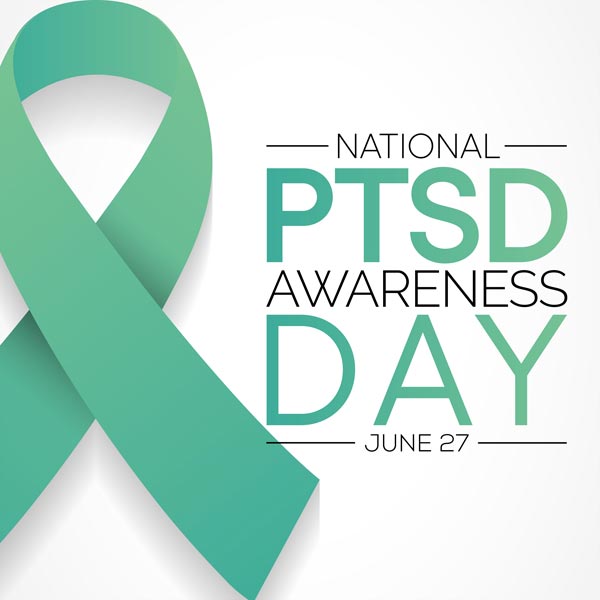June is PTSD Awareness Month

Every year, June is considered to be National Post-Traumatic Stress Disorder (PTSD) Awareness Month and I can not think of a more important time to discuss the importance of developing an education and an understanding towards PTSD. This disorder is one that can not be ignored. Someone who suffers from PTSD can have a crippling relationship with it and that is why it is important for us to be able to understand what causes PTSD and how to help someone who suffers from it.
There are about 8 million people in the United States that are currently suffering from PTSD and most of them do not completely understand it or know how to cope with it. That is why the month of June is dedicated to raising the awareness towards PTSD and more specifically June 27th is reserved for acknowledging those with PTSD.
This week we are going to talk more about PTSD and its causes. First of all, what is PTSD? Post-traumatic stress disorder is a condition of mental or emotional stress that results from a traumatic experience. People who suffer from PSTD can experience intrusive thoughts, behaviors, memories, flashbacks, or nightmares. Others can have a more extreme case of PTSD and will actually act out in response to those nightmares, flashbacks, etc. There are ways to medically treat PTSD: medications and or therapies; such as psychotherapies. These kinds of therapies are not the typical sit down therapy sessions. Instead they are more anchored to targeting desensitizing eye movement because this can be a common symptom of a PTSD episode. In addition to psychotherapies, you can also participate in traditional therapy sessions. It is important to understand that everyone’s case is different, therefore has to be handled accordingly.
There are different emotional signs that can indicate if someone is suffering from PTSD. They include: angry outbursts, sleep difficulties including frequent nightmares, depression, chronic anxiety, feeling unsafe and reliving the trauma. A person’s behavior changes as well and they might experience poor coping skills, lower self esteem and self-care, their relationships with others may be affected, and daily tasks may be difficult to perform.
When we think of who suffers from PTSD we more commonly think of veterans and those who are on the first line of defense: police, firefighters, EMTs. However, PTSD is not just limited to these people, anyone can develop the condition. There are a number of things that can cause PTSD, we most commonly know about war and physical combat, however there are others: car crash or any other traumatic crash, natural disaster, crime, and or just any event that causes someone to be impacted negatively. Events that can cause PTSD can and will vary between individuals.
It is important that when you come into contact with someone who you know suffers from PTSD that you take the time to learn their story and their triggers—if they are willing to tell you. By understanding more about their condition you will be able to assist them better if a wave of stress appears. What many people do not understand is that a multitude of things can trigger one’s condition: entering a car, heavy rain, and or even something as simple as a glass shattering on the floor. Whatever the scenario maybe, it is important to know that even the ‘simplest’ things can trigger an episode for someone.
The most common example of this case is relevant to us right now. Memorial Day just passed and we take this time to honor those who lost their lives fighting for our country. Known as the unofficial kickoff of summer, we celebrate the holiday by cooking food, hanging out with friends, and maybe even lighting off a firework or two in the backyard. For most, this sounds like a fun night, but for someone suffering with PTSD it can actually be a nightmare. Loud noises, such as fireworks, can be the biggest trigger to someone who has PTSD. Although the intent is not to harm anyone, it can have a huge emotional impact and create painful memories.
If you or someone you know is suffering from PTSD, make an effort this month to either educate someone or become more educated yourself. PTSD is an intense disorder to suffer from and the more that people understand it, the more that we can help those who are affected by it.
